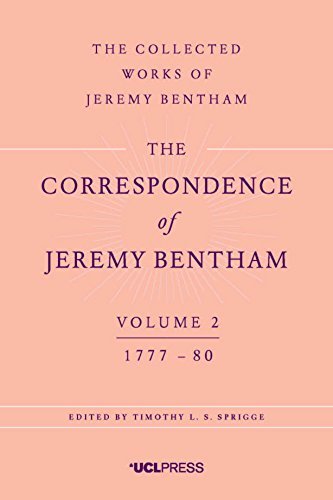What do you think?
Rate this book


The first five volumes of the Correspondence of Jeremy Bentham contain over 1,300 letters written both to and from Bentham over a 50-year period, beginning in 1752 (aged three) with his earliest surviving letter to his grandmother, and ending in 1797 with correspondence concerning his attempts to set up a national scheme for the provision of poor relief. The early letters deal with Bentham’s education at Oxford University, where he was sent at the age of 12 and graduated at the age of 16, and his legal training before being admitted to the bar at the age of 21. He soon afterwards turned his back on the practice of the law and, allying himself with the more radical and sceptical figures of the continental Enlightenment, embarked on a career of law reform.
Against the background of the debates on the American Revolution of 1776 and the French Revolution of 1789, to which he made significantcontributions, Bentham worked first on producing a complete penal code, and then on his panopticon prison scheme. Despite developing a host of original and ground-breaking ideas, contained in a mass of manuscripts, he published little during these years, and remained, at the close of this period, a relatively obscure individual. Nevertheless, these volumes reveal how the foundations were laid for the remarkable rise of Benthamite utilitarianism in the early nineteenth century.
Bentham’s educational ideas were the inspiration for the founding of UCL. The vast majority of Bentham’s papers, consisting of around 60,000 folios, are held in UCL Library.
Bentham’s correspondence reveals that in the late 1770s he was
working intensively on the development of a code
of penal law, but also expanding his acquaintance and, to a moderate degree,
enhancing his reputation as a legal thinker. A significant family event took
place in 1779, when his brother Samuel went to Russia in order to make his
fortune.
768 pages, Kindle Edition
Published June 7, 2017